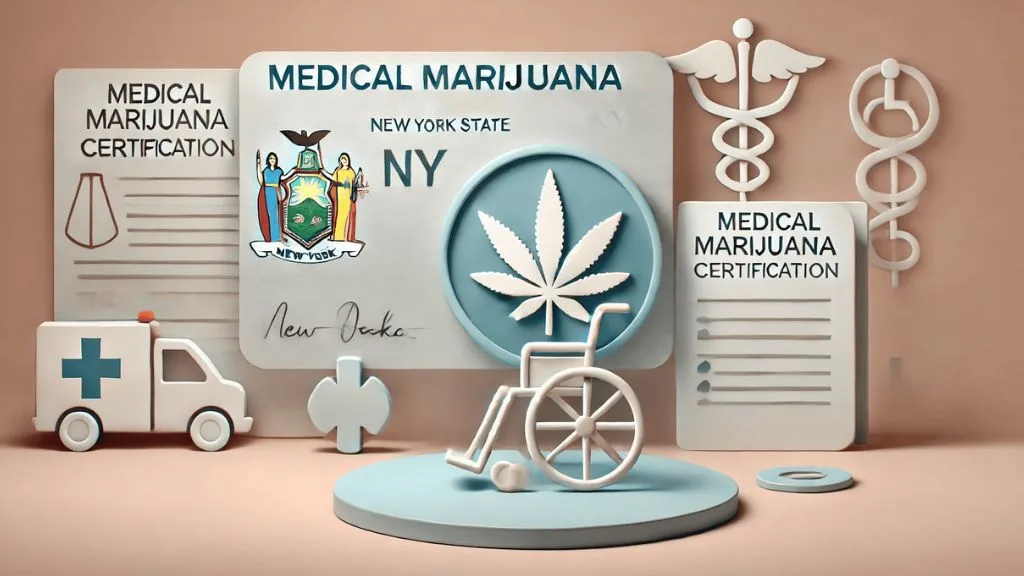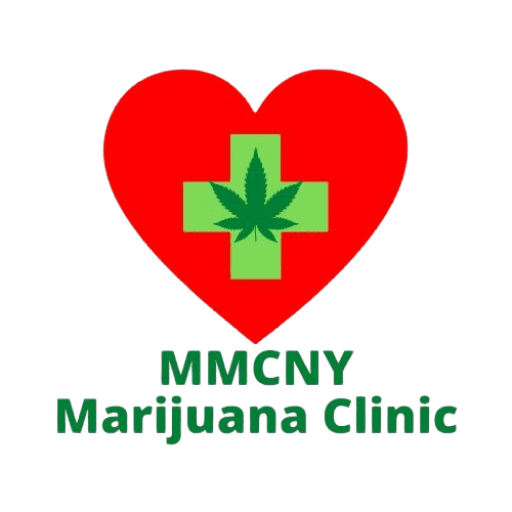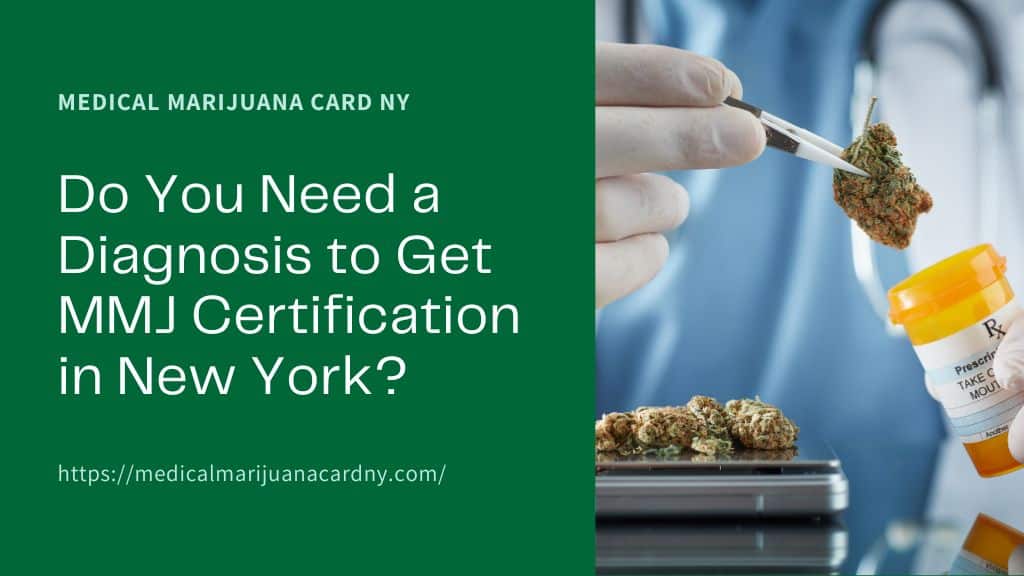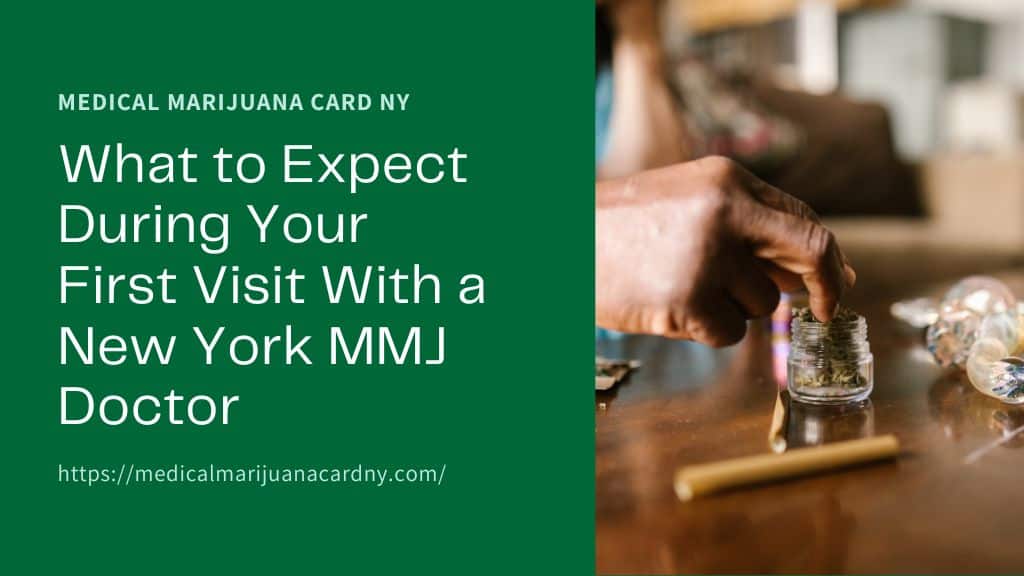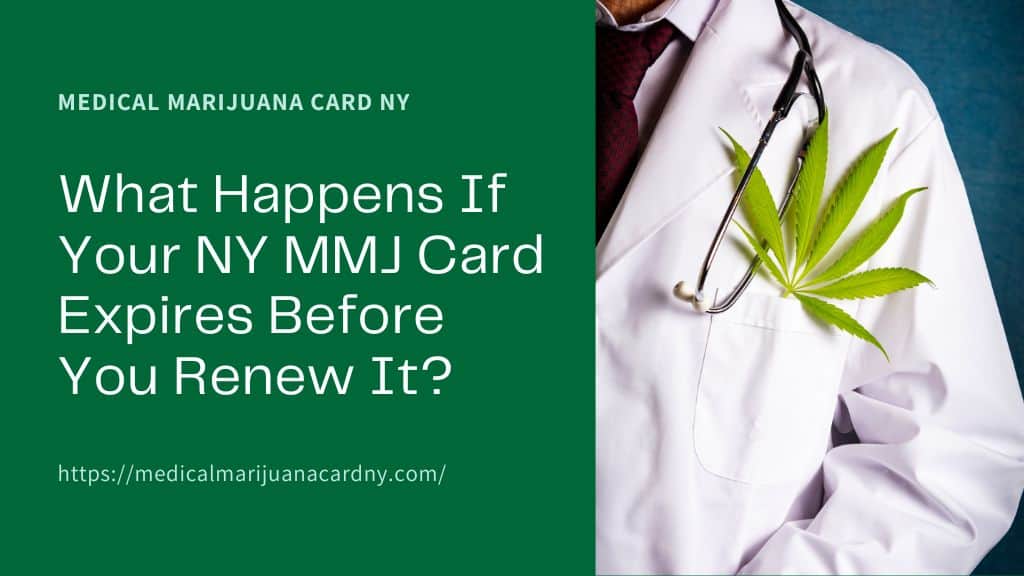Did you know that having a disability can actually make it easier to get medical marijuana certification in New York? For many veterans and others with disabilities, medical marijuana offers a way to manage chronic pain, anxiety, and other conditions that are hard to treat with regular medicine.
In New York, certain disabilities are specifically recognized as qualifying conditions for medical marijuana. But how exactly does having a disability affect your chances of getting certified? And what steps do you need to take to ensure your application is successful?
In this blog, we’ll break down everything you need to know, from the types of disabilities that qualify to the paperwork required for your application. We’ll also look at the role of medical marijuana doctors in educating patients, making sure you use medical marijuana safely and effectively.
Whether you’re a veteran dealing with the lasting effects of service or someone managing a long-term disability, this guide will help you understand how medical marijuana could be a helpful part of your treatment plan. Keep reading to learn more and take the first step toward better health.
Table of Contents
Toggle- What Are the General Requirements for Medical Marijuana Certification in New York?
- How Can Disability Influence Eligibility for Medical Marijuana Certification in New York?
- Which Disabilities Are Specifically Recognized Under New York’s Medical Marijuana Program?
- Why Is Medical Marijuana Considered a Viable Option for Individuals with Disabilities in New York?
- Can a Disability Alone Qualify Someone for Medical Marijuana Certification in New York?
- How Does the Process of Certification Differ for Disabled Individuals?
- Who Can Assist Disabled Individuals in Obtaining Medical Marijuana Certification in New York?
- What Legal Protections Exist for Disabled Individuals Using Medical Marijuana in New York?
- Where Can Disabled Individuals Access Medical Marijuana in New York?
- How Can Disabled Individuals Safely Use Medical Marijuana?
- Why Might a Medical Marijuana Certification Be Denied to Someone with a Disability?
- Which Forms of Medical Marijuana Are Most Suitable for Different Disabilities?
- Role of Medical Marijuana Doctors in Patient Education
- Conclusion
What Are the General Requirements for Medical Marijuana Certification in New York?
To get a medical marijuana certification in New York, you need to meet specific criteria set by the state. First, you must be a resident of New York with proof of residency, like a state ID or utility bill. You also need to be diagnosed with a qualifying medical condition.
This list includes conditions like cancer, HIV/AIDS, Parkinson’s disease, and epilepsy. The condition must be severe, causing chronic pain, seizures, or another serious symptom that traditional treatments haven’t relieved.
Next, you must get a recommendation from a registered healthcare provider. This could be a doctor, nurse practitioner, or physician assistant who is certified by New York State to recommend medical marijuana. The healthcare provider will evaluate your medical history, current symptoms, and treatment options to decide if medical marijuana is appropriate for you.
Once you have the recommendation, you need to apply for a medical marijuana card through the New York State Department of Health’s online portal. You will need to provide personal information, proof of residency, and your healthcare provider’s certification. If approved, you’ll receive your medical marijuana card, which allows you to purchase marijuana from a registered dispensary in New York.
How Can Disability Influence Eligibility for Medical Marijuana Certification in New York?
Disability can play a significant role in determining your eligibility for medical marijuana certification in New York. Disabilities often come with chronic pain, muscle spasms, or other severe symptoms that qualify for medical marijuana treatment. If your disability includes one of the conditions on New York’s approved list, like multiple sclerosis or spinal cord injuries, you may be eligible for certification.
Disabilities that lead to other qualifying conditions, like PTSD or severe anxiety, also make you a candidate for medical marijuana. The connection between your disability and the qualifying condition must be clear and documented by a healthcare provider. This documentation is crucial in proving that medical marijuana could help manage your symptoms when other treatments have failed.
In some cases, having a disability may require additional steps in the certification process. For example, if your disability affects your cognitive abilities, a caregiver might need to help you manage your medical marijuana use. The state of New York allows for designated caregivers who can assist patients with disabilities in purchasing and administering their medical marijuana.
Which Disabilities Are Specifically Recognized Under New York’s Medical Marijuana Program?
New York’s Medical Marijuana Program recognizes several disabilities that can qualify you for certification. These include but are not limited to:
- Multiple Sclerosis (MS): MS causes muscle spasms and severe pain, which are qualifying symptoms for medical marijuana.
- Spinal Cord Injuries: Injuries to the spinal cord can lead to chronic pain and muscle stiffness, making you eligible for treatment.
- Epilepsy: Seizures caused by epilepsy can be managed with medical marijuana, and this condition is explicitly recognized by the program.
- Parkinson’s Disease: The muscle tremors and pain associated with Parkinson’s make it a qualifying condition under New York law.
- Post-Traumatic Stress Disorder (PTSD): PTSD is recognized due to its severe impact on mental health and its potential to be managed by medical marijuana.
These disabilities are recognized because they cause symptoms that medical marijuana can effectively treat, such as chronic pain, muscle spasms, and severe anxiety.
Why Is Medical Marijuana Considered a Viable Option for Individuals with Disabilities in New York?
Medical marijuana is considered a viable option for individuals with disabilities because it offers relief from symptoms that other treatments may not fully address. For example, medical marijuana can reduce chronic pain, a common issue for many disabilities.
Traditional painkillers, especially opioids, can be addictive and have serious side effects, while medical marijuana offers a natural alternative with fewer risks.
Studies have shown that medical marijuana can also help with muscle spasms, which are common in conditions like multiple sclerosis and spinal cord injuries. It works by interacting with the body’s endocannabinoid system, which plays a role in pain and muscle control. This interaction helps reduce the frequency and severity of spasms.
For mental health conditions like PTSD, medical marijuana can reduce anxiety and improve sleep, which are significant challenges for many patients. It does this by affecting the brain’s receptors that regulate mood and stress responses.
Overall, medical marijuana is considered viable because it provides a multi-faceted approach to managing the symptoms of various disabilities, offering relief where other treatments may fall short.
Can a Disability Alone Qualify Someone for Medical Marijuana Certification in New York?
No, having a disability alone does not automatically qualify someone for medical marijuana certification in New York. The disability must be associated with a condition recognized by the state as eligible for medical marijuana treatment. For example, if your disability causes chronic pain, severe nausea, or seizures, you may qualify. The key is that your symptoms must align with the state’s list of qualifying conditions.
Your healthcare provider plays a crucial role in this process. They will evaluate your disability and determine if it causes symptoms severe enough to warrant medical marijuana use. If your disability does not lead to a qualifying condition, you may not be eligible for certification, even if your disability is significant.
It’s essential to have a detailed medical history and documentation of your disability when seeking certification. This documentation will help your healthcare provider make a strong case for why medical marijuana is necessary for managing your symptoms.
How Does the Process of Certification Differ for Disabled Individuals?
The process of certification for disabled individuals can differ slightly, mainly due to the need for additional support and documentation. For instance, if your disability affects your ability to communicate or move, you may require a caregiver to assist with the certification process. New York State allows for designated caregivers, who can help with everything from applying for the medical marijuana card to purchasing and administering the medication.
Disabled individuals might also need to provide more detailed medical records to demonstrate how their disability qualifies them for medical marijuana. This might include letters from multiple healthcare providers, detailed treatment histories, and records of previous treatments that failed to manage symptoms effectively.
If mobility is an issue, the application process can be completed online, and many healthcare providers offer telemedicine consultations. This means you can get certified without leaving your home, which is a significant benefit for individuals with mobility challenges.
Additionally, some dispensaries in New York offer delivery services, making it easier for disabled individuals to access their medication without needing to visit a physical location.
Who Can Assist Disabled Individuals in Obtaining Medical Marijuana Certification in New York?
Disabled individuals in New York have several resources available to help them obtain medical marijuana certification. One of the most important resources is healthcare providers who are registered with the New York State Department of Health to certify patients for medical marijuana. These providers can be doctors, nurse practitioners, or physician assistants who have completed the necessary training to recommend medical marijuana. They will evaluate the patient’s medical history, current condition, and treatment options to determine if medical marijuana is appropriate.
Caregivers can also play a crucial role. In New York, patients who are unable to manage their medical marijuana treatment independently can designate up to two caregivers. These caregivers are responsible for assisting with the application process, purchasing medical marijuana, and administering it as needed.
The state requires caregivers to register with the Department of Health and complete a background check. Caregivers are often family members, but they can also be friends or hired professionals.
Another resource is patient advocacy groups. Organizations like the Medical Marijuana Program of New York and the New York State Department of Health provide guidance and support to individuals seeking certification. These groups often offer educational resources, legal assistance, and connections to healthcare providers who can assist with certification.
What Legal Protections Exist for Disabled Individuals Using Medical Marijuana in New York?
In New York, disabled individuals using medical marijuana are protected by several state laws. The Compassionate Care Act, passed in 2014, is the primary law that governs medical marijuana use in New York. This law allows individuals with qualifying conditions, including disabilities, to use medical marijuana legally. It also ensures that patients cannot be arrested or prosecuted for possessing or using medical marijuana as long as they comply with state regulations.
Patients are also protected in the workplace. Under New York’s Human Rights Law, employers cannot discriminate against employees or job applicants based on their status as a certified medical marijuana patient. This means that disabled individuals who use medical marijuana cannot be fired or denied employment solely because they are certified patients. However, there are exceptions, especially in jobs where safety is a concern, such as operating heavy machinery.
Housing protections are also in place. Landlords cannot refuse to rent to someone because they are a certified medical marijuana patient. This protection ensures that disabled individuals who use medical marijuana have equal access to housing without fear of discrimination.
Where Can Disabled Individuals Access Medical Marijuana in New York?
Disabled individuals can access medical marijuana at registered dispensaries across New York State. These dispensaries are licensed by the New York State Department of Health and are the only legal places to purchase medical marijuana. Patients must have a valid medical marijuana card to buy products from these dispensaries.
Dispensaries offer a variety of products, including tinctures, capsules, oils, and vaporizers. Some dispensaries also provide home delivery services, which is especially beneficial for disabled individuals who have difficulty traveling. Patients can find a list of registered dispensaries on the New York State Department of Health’s website. Each dispensary has trained pharmacists who can help patients choose the right product and dosage for their specific needs.
In addition to dispensaries, patients can also access medical marijuana through their designated caregivers. Caregivers can purchase medical marijuana on behalf of the patient and deliver it to them, ensuring that those with mobility issues or other disabilities can still receive their medication.
How Can Disabled Individuals Safely Use Medical Marijuana?
Safe use of medical marijuana is crucial, especially for disabled individuals who may have specific health concerns. The first step to safe use is understanding the correct dosage. Medical marijuana products come in different strengths, and it’s important to start with a low dose and gradually increase it if needed. Healthcare providers can provide guidance on the appropriate dosage based on the patient’s condition and the form of marijuana they are using.
It’s also important to choose the right method of consumption. For example, individuals with respiratory issues may want to avoid smoking or vaping and instead use edibles, tinctures, or capsules. These methods provide the benefits of medical marijuana without the risks associated with inhaling smoke or vapor.
Storage is another safety consideration. Medical marijuana should be stored in a secure location, away from children and pets. It should also be kept in its original packaging, which includes important information about dosage and expiration dates.
Patients should also be aware of potential side effects. Common side effects include dizziness, dry mouth, and fatigue. If a patient experiences severe side effects or has an allergic reaction, they should contact their healthcare provider immediately.
Finally, it’s important to avoid mixing medical marijuana with other medications unless advised by a healthcare provider. Some medications can interact with marijuana, leading to unwanted side effects or reduced effectiveness of the medication.
Why Might a Medical Marijuana Certification Be Denied to Someone with a Disability?
A medical marijuana certification might be denied for several reasons, even if the individual has a disability. One common reason is if the patient’s condition does not meet the state’s list of qualifying conditions. In New York, only certain conditions, such as chronic pain, epilepsy, and multiple sclerosis, are eligible for medical marijuana certification. If a patient’s disability does not cause one of these qualifying symptoms, they may be denied certification.
Another reason for denial could be a lack of proper documentation. Healthcare providers need detailed medical records to assess whether medical marijuana is an appropriate treatment. If these records are incomplete or do not clearly support the need for medical marijuana, the provider may not issue a certification.
Patients may also be denied certification if they have a history of substance abuse. Providers must ensure that medical marijuana is a safe option for the patient, and a history of substance abuse could indicate a risk of misuse.
Finally, patients under the age of 18 may be denied certification unless they have a legal guardian who can act as their designated caregiver. The state of New York requires minors to have a caregiver who is responsible for managing their medical marijuana treatment.
Which Forms of Medical Marijuana Are Most Suitable for Different Disabilities?
Different forms of medical marijuana can be more suitable depending on the specific disability and its symptoms. Here are some common forms and their benefits:
- Tinctures: Tinctures are liquid extracts that can be taken orally or added to food. They are easy to dose and provide fast relief. Tinctures are suitable for patients who need quick symptom relief, such as those with severe pain or anxiety.
- Capsules: Capsules are swallowed like pills and provide a consistent dose of medical marijuana. They are discreet and easy to take, making them ideal for patients who need long-lasting relief throughout the day, such as those with chronic pain or muscle spasms.
- Vaporizers: Vaporizers heat marijuana to release its active ingredients without burning it. This method provides quick relief and is less harmful to the lungs than smoking. Vaporizers are suitable for patients who need immediate relief from symptoms like nausea or pain.
- Topicals: Topical creams and lotions are applied directly to the skin. They are ideal for patients with localized pain, such as arthritis or muscle stiffness, as they provide targeted relief without affecting the rest of the body.
- Edibles: Edibles are foods or drinks infused with marijuana. They take longer to take effect but provide longer-lasting relief. Edibles are suitable for patients who need extended relief, such as those with chronic pain that interferes with sleep.
Choosing the right form of medical marijuana depends on the patient’s specific needs and the symptoms they are trying to manage.
Role of Medical Marijuana Doctors in Patient Education
Medical marijuana doctors play a crucial role in helping patients understand how medical marijuana can be used as a treatment option. They provide important information about the benefits, risks, and proper use of medical marijuana, ensuring that patients are well-informed before starting treatment. Education is a key part of a doctor’s responsibility because many patients are new to medical marijuana and may not know how it works or how it can help their specific condition.
Doctors begin by explaining how medical marijuana interacts with the body. They teach patients about the endocannabinoid system, which is a part of the body that helps regulate pain, mood, and other functions. Medical marijuana can influence this system, providing relief from symptoms that other treatments might not effectively manage.
Doctors also discuss the different forms of medical marijuana, such as oils, tinctures, edibles, and vaporizers, and help patients choose the best method for their needs. This is important because each form of medical marijuana works differently and can have different effects on the body.
Another important aspect of patient education is dosage. Medical marijuana doctors guide patients on how much to use and how often. They emphasize starting with a low dose and gradually increasing it if needed, which helps minimize side effects and ensures the patient receives the most benefit from their treatment.
What Is the Role of Medical Marijuana Doctors in Educating Patients About Certification?
Medical marijuana doctors are essential in helping patients understand the certification process. Certification is necessary for legal access to medical marijuana in New York, and doctors are the ones who determine whether a patient qualifies.
The first step doctors take is to explain the requirements for certification. They go over the list of qualifying conditions, such as chronic pain, epilepsy, or multiple sclerosis, and assess whether the patient’s condition meets these criteria. If the patient’s condition qualifies, the doctor then explains the next steps in the certification process, including how to apply for a medical marijuana card through the New York State Department of Health.
Doctors also educate patients about the legal aspects of certification. They explain that having a medical marijuana card allows patients to purchase and use medical marijuana legally, but it also comes with responsibilities, such as not sharing the medication with others and following the state’s guidelines for use.
How Do Medical Marijuana Doctors Assist Disabled Patients in Understanding Their Treatment Options?
Disabled patients often have specific needs and challenges that make choosing the right treatment options more complicated. Medical marijuana doctors are trained to help these patients understand how medical marijuana can fit into their overall treatment plan.
One way doctors assist is by evaluating how a patient’s disability affects their symptoms and daily life. For example, a patient with a spinal cord injury may experience chronic pain and muscle spasms, while someone with multiple sclerosis may have difficulty with movement and coordination. The doctor considers these factors when recommending a form of medical marijuana that will best address the patient’s symptoms.
Doctors also discuss the potential benefits and risks of using medical marijuana for disabled patients. They compare medical marijuana with other treatments the patient might be using, such as prescription painkillers or physical therapy, and help the patient decide whether adding medical marijuana to their regimen could improve their quality of life.
For patients with cognitive disabilities, doctors often work closely with caregivers to ensure that the patient’s treatment plan is followed correctly. They provide clear instructions on how to administer the medication and monitor the patient’s response to the treatment.
Can Medical Marijuana Doctors Provide Resources for Disabled Patients in New York?
Yes, medical marijuana doctors can provide a variety of resources to help disabled patients manage their treatment. These resources include educational materials, support services, and referrals to specialists who can offer additional care.
Doctors often provide written guides or brochures that explain how to use medical marijuana safely and effectively. These materials cover topics such as dosage, potential side effects, and how to store the medication properly. They are especially helpful for patients who need a reference to look back on after their appointment.
In addition to educational materials, doctors can connect patients with support services. For example, they might refer patients to local support groups where they can meet others who are also using medical marijuana to manage similar conditions. These groups provide a sense of community and can offer practical advice on how to handle challenges related to treatment.
Doctors can also refer patients to other healthcare professionals who specialize in areas that might benefit the patient. For instance, a patient with severe pain might be referred to a pain management specialist, while someone with mobility issues could be connected with a physical therapist who understands how to work with patients using medical marijuana.
Conclusion
Disability can significantly influence the process of obtaining medical marijuana certification in New York. Individuals with disabilities often experience chronic pain, muscle spasms, or other severe symptoms that qualify them for medical marijuana under state law. However, the certification process involves more than just having a disability; it requires a thorough evaluation by a registered healthcare provider to determine if medical marijuana is the right treatment option.
Medical marijuana doctors play a crucial role in guiding disabled patients through this process. They provide education on how medical marijuana works, assess the patient’s specific needs, and ensure that all legal requirements are met. For disabled individuals, having access to medical marijuana can greatly improve their quality of life by offering relief from symptoms that other treatments might not fully address.
Understanding the requirements, legal protections, and resources available is essential for disabled individuals seeking medical marijuana certification. With the right support and information, disabled patients in New York can navigate the certification process more effectively and access the treatment they need to manage their conditions.
Resources
https://www.health.ny.gov/regulations/medical_marijuana/
https://www.ncsl.org/health/state-medical-cannabis-laws
https://www.mpp.org/states/new-york/
https://www.nysenate.gov/legislation/laws/PBH/3360
https://www.cdc.gov/cannabis/about/index.html
https://norml.org/act/new-york-medical-marijuana-expansion/

